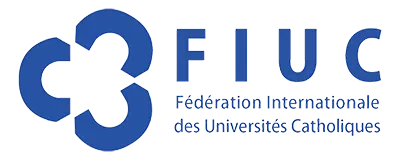Higher Education Foresight Studies

Across the world, the field of higher education is undergoing dramatic changes, mainly under the impact of Converging Technologies for Improving Human Performance and of Artificial Intelligence. The workplace and employment transformations these technologies are creating compel universities to adapt, and rethink both pedagogical approaches and the very nature of the curricula they offer.
With this in mind, IFCU has established a Higher Education Foresight Department, aimed at providing decision support for presidents and managing teams of member-universities. The department will henceforth publish an annual report on ongoing and future changes affecting and likely to affect the near-term landscape of higher education, professional training and the job market – as AI, automation and robotization are penetrating or even taking over an ever-increasing range of professions and trades.
Dr. Corinne Mellul is IFCU’s Head of Research and concentrates in her work on the transformations of higher education and labor under the impact of technology. She is happy to deliver talks and presentations at relevant events among member-institutions and beyond.
Contact : corinne.mellul@bureau.fiuc.org
IFCU FORESIGHT REPORTS
The Geopolitics of Higher Education
The geopolitical tensions that now dominate the international landscape had been brewing for years, and it was clear, even before Russia’s war against Ukraine, that the world order was reverting to great-power politics. Higher education has played a leading role in this shift in alignment, as an important instrument of “soft power” and vector of global influence – meaning that university leaders need to pay more attention to their regional and global geopolitical environment.
The Future of Teaching and Researching (2023)
Higher education has gone through dramatic transformations over the past two decades, and is bound to be altered even more significantly by 2030. Educational technology will evidently continue to play a major role in these changes, but other rising trends will have an equally disrupting impact. This report focuses on how the academic profession will evolve in the new landscape that is dawning for instructors and researchers.
Crucial among the developing trends that will affect teaching and researching are the rise of student-centered education; the ways in which technology will transform further both teaching and learning; the growing focus on skill-centered teaching and learning; the mainstreamization of microcredentials and other alternative pathways to post-secondary education; the growing focus on students’ mental health; and, perhaps most significantly for academics, the demise of tenure and the concomitant generalization of short-term contracts and adjunct statuses – one possible effect of which may be the delinking of the teaching and researching activities. With respect to instructors, new roles will therefore emerge and virtually replace the time-old mission of the “sage on the stage” as an educator whose primary tasks involve the transmission of knowledge.
The report offers an overview of this changing landscape, and relies on a number of possible scenarios – each of which prioritizes a selection of key potential transformations in the global economic, social and political environment that may take place by 2030 – to lay the ground for further reflection on how universities and aspiring faculty may best prepare for what already appears as a watershed moment for the higher education sector.
Contact : corinne.mellul@bureau.fiuc.org
The Fourth Industrial Revolution in Higher Education and Work: an Assessment
In 2018, the International Federation of Catholic Universities (IFCU) published its first review of developing trends in higher education and the workplace, which focused on the disruptive effects in these two areas of technologies associated with the Fourth Industrial Revolution. With that report, titled Emerging Technologies in Higher Education and the Workplace: An Assessment, IFCU initiated the yearly publication of a broad overview of the state of higher education and labor that would also provide reflection on emerging and developing trends, and on where they may lead. The 2019 iteration, Higher Education Today and Tomorrow: A Critical Assessment, examined in sharper focus a number of evolving tech-based policies and practices in universities – some shaped by the need to accommodate the changing demands of the labor market – with a view to fostering a debate on the possible adverse effects of these transformations.
These two reports have now been joined in a single volume with the intention of offering member universities and the higher education community at large a wide picture of the momentous challenges currently being faced by colleges and universities across the world.
Contact : corinne.mellul@bureau.fiuc.org
The Foresight Department has also published a short document: “Qualifications for Higher Education: An Overview”.
A brief search of what qualifies a teacher to teach at university undergraduate and postgraduate level in all countries is sufficient to establish that it must be one of the least regulated professions in the world in terms of required skills.
This overview aims to provide a comparative overview of the pathways and requirements for academic careers in selected countries covering various regions of the world. The countries examined below are: the USA, four EU Member States (Denmark, Germany, Italy and Spain), the UK and India.)
Contact : corinne.mellul@bureau.fiuc.org
